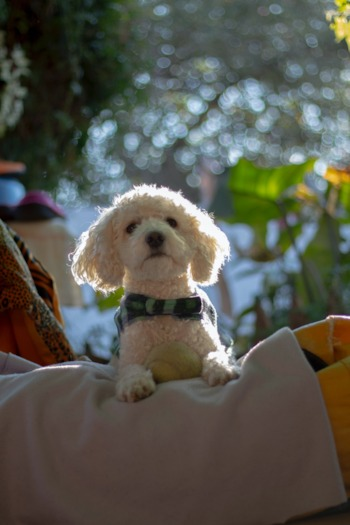Bichon Frise Breed Information


The Bichon Frise is a delightful and charming dog breed that is beloved by many. With their fluffy white coats, lively personalities, and affectionate nature, Bichon Frises are the perfect furry companions for those seeking a loyal and lovable friend.
Originating from the Mediterranean region, the Bichon Frise was originally bred as a lapdog and companion for the nobility. Their charming personality and adorable appearance made them a popular pet among the upper classes, and over time they became increasingly sought after by dog lovers around the world.
One of the defining features of the Bichon Frise is their hypoallergenic coat, which sheds very little and is great for those with allergies. Their coat requires regular grooming to keep it looking fluffy and healthy, but many owners enjoy the bonding time spent with their furry friend during grooming sessions.
In terms of personality, Bichon Frises are known for their happy-go-lucky attitude and affectionate nature. They love spending time with their human families and are always up for a good snuggle session or playtime in the yard. They are also intelligent and easy to train, making them a great choice for first-time dog owners.
Characteristics
- The Bichon Frise is a great choice for those with allergies, as they have a hypoallergenic coat that sheds very little and produces less dander than many other breeds
- These charming little pups have a gentle and affectionate nature, making them ideal candidates for therapy dog work. They are often used in hospitals and nursing homes to provide comfort and companionship to those in need
- Bichon Frises has a coat that does not shed much, making them a great choice for those who don't want to deal with lots of dog hair around their home
- These pups were originally bred as companion animals, and they excel in this role. They are loving, affectionate, and always eager to spend time with their human families
- Bichon Frises may be small, but they are also very alert and vigilant. They make great watchdogs and will bark to alert their owners if they sense any danger
- These charming fluff balls are incredibly adaptable and can fit comfortably into both large and small living spaces if they get proper exercise, companionship, and love from their loved ones
- These dogs have a fun-loving and playful personality and enjoy games and toys of all kinds
- The Bichon Frise is intelligent and is eager to please, making them easy to train. They respond well to positive reinforcement methods and can be taught a variety of tricks and commands very easily

Appearance
The Bichon Frise is a small, fluffy dog breed with charming looks and a distinctive appearance. This charming breed is known for their hypoallergenic coat, which sheds very little and produces less dander than many other breeds. This makes them a great choice for those with allergies or who simply don't want to deal with lots of dog hair around their home.
The Bichon Frise has a fluffy coat that is made up of tight, corkscrew curls. The fur is soft and dense and is usually pure white in colour. They have large, round eyes that are usually dark in colour, and a small nose that is typically black. Their ears are long and droopy and are covered in long fur that gives them a distinctive appearance.
When it comes to their overall appearance, they have a lively and alert gaze that perfectly matches their playful personality. They are small, typically weighing between 10 and 20 pounds, and stand around 9 to 12 inches tall at the shoulder.
Temperament
These little pups thrive on attention from their human families and are always eager to snuggle up and be close to their loved ones. They are known for their friendly and gentle nature and are great with children and other pets.
The Bichon Frise is also an excellent therapy dogs due to their calm and loving demeanor. They are often used in hospitals and nursing homes to provide comfort and companionship to those in need, and their cheerful personality and cute appearance can bring a smile to even the grumpiest of patients.
Despite their small size, Bichon Frises are also surprisingly fast and agile, and love to run and play. They are great at learning new tricks and love to perform for their human families. However, they are also content to curl up on the couch and watch a movie with their loved ones.
Care
Grooming
The Bichon Frise is a fluffy, hypoallergenic dog breed that requires regular grooming to keep their coat looking healthy and shiny. The Bichon Frise has a dense, curly coat that requires daily brushing to prevent matting and tangling. A slicker brush or metal comb can be used to remove loose hair and tangles.
Bichons are prone to dental problems, so it's important to brush their teeth regularly to keep them healthy. Brushing their teeth with a dog-specific toothbrush and toothpaste at least once a week can help prevent plaque build-up and other dental issues.
The fluff balls should be bathed every three to four weeks to keep their coat clean and smelling fresh. It's important to use a dog-specific shampoo and conditioner, as human products can be too harsh for their sensitive skin. After bathing, the coat should be dried thoroughly to prevent any moisture from getting trapped and causing skin irritation.
Bichon Frises have small, delicate nails that should be trimmed every three to four weeks. Overgrown nails can cause discomfort and pain and can even affect their walk. Clippers designed for small dogs can be used to trim their nails.
Exercise Needs
The Bichon Frise is a small dog breed with moderate exercise needs. While they are not as high-energy as some other breeds, they still require regular exercise to maintain their health and happiness.
A daily walk in the park or around the block is usually enough to meet their exercise needs. However, it's important to keep in mind that they can be prone to weight gain, so it's important to monitor their diet and ensure they get enough physical activity.
They are intelligent dogs and enjoy learning new tricks and games. Interactive toys and puzzle feeders can provide mental stimulation and keep them entertained when you're not able to give them your full attention.
While Bichons may not require as much exercise as some other breeds, it's important to keep them active and engaged to prevent boredom and promote overall health and well-being. Whether you're taking them for a walk or teaching them a new trick, spending time with your Bichon Frise is sure to be a rewarding and enjoyable experience for both you and your furry friend.
Health
Bichon Frise are popular due to their good health and hardiness. They make excellent pets for any family. Though, as with all breeds, they may be inclined to specific health-related issues.
One of the most common health issues in Bichon Frises is dental problems. Their small mouths and delicate teeth can make them prone to tooth decay and gum disease. Regular teeth brushing and dental check-ups can help prevent these issues.
Another common health concern for Bichon Frises is skin allergies. They can be sensitive to certain foods and environmental factors, which can cause itching, redness, and other skin irritations. Regular bathing and grooming can help prevent skin issues, and working with a veterinarian to identify and eliminate allergens can also help keep your Bichon Frise healthy.
They are also prone to certain eye conditions, including cataracts and progressive retinal atrophy. Regular eye check-ups with a veterinarian can help detect and treat these issues early on.
Lifespan
The Bichon Frise is a relatively long-lived breed, with an average lifespan of 12 to 15 years. This means that with proper care and attention, your furry friend can be a loving and loyal companion for many years to come.
As with all dog breeds, there are several factors that can affect the lifespan of a Bichon Frise. Proper nutrition, regular exercise, and regular veterinary care can all help ensure that your furry friend stays healthy and happy throughout their life.
Training
This charming pup is an intelligent and trainable breed that respond well to positive reinforcement training techniques. They are eager to please their owners and love to learn new tricks and skills.
One of the reasons that the Bichon Frise is so easy to train is because they are highly intelligent and responsive. They are quick learners and enjoy engaging with their owners during training sessions. Positive reinforcement techniques, such as treats, praise, and playtime, are especially effective with this breed.
It's important to start training your Bichon Frise early on, as puppies are especially receptive to learning and can quickly pick up new commands and behaviors. Socialization is also important for Bichon Frises, as they can be prone to separation anxiety and may need to be taught to feel comfortable in new situations and around new people.
History
The history of the Bichon Frise is a long and fascinating one, dating back to the 13th century on the island of Tenerife in the Canary Islands. It is believed that these charming little dogs were descended from the Barbet, a water dog from France, and were bred by local islanders for their friendly and playful personalities.
In the 16th century, Italian sailors discovered the Bichon Frise on their travels and brought them back to the European mainland. The breed quickly became popular among the French and Spanish aristocracy, who kept them as lapdogs and companions. In France, the Bichon Frise breed was a particular favourite of King Henry III, who reportedly carried them around in his sleeves.
During the Renaissance, Bichon Frises became popular among artists and writers, including Francisco de Goya and Miguel de Cervantes. These creative individuals were drawn to the breed's lively personalities and adorable appearance, and many depicted them in their paintings and writings.
However, the Bichon Frise's popularity began to wane in the late 19th and early 20th centuries, as other breeds became more fashionable. By the early 1900s, the breed was nearly extinct. Thankfully, a small group of dedicated breeders in France and Belgium worked tirelessly to preserve the Bichon Frise and bring it back from the brink of extinction. They focused on breeding dogs with the breed's signature fluffy coat, friendly personality, and hypoallergenic qualities, and their efforts paid off - by the mid-20th century, the breed was enjoying renewed popularity.
